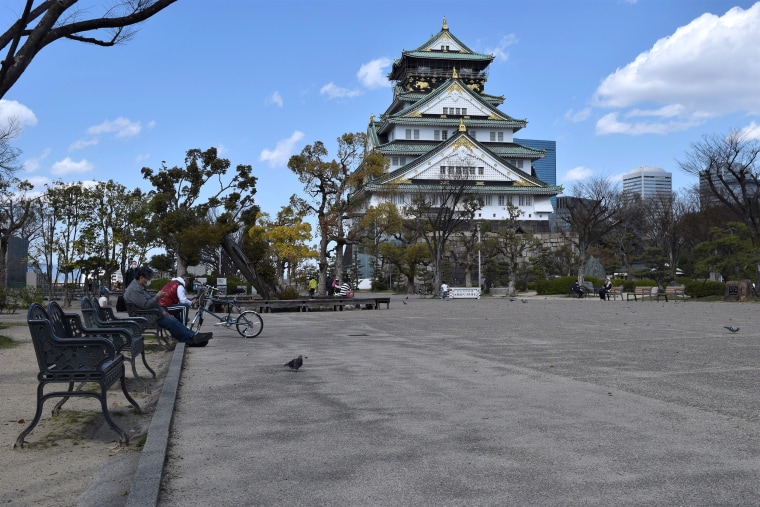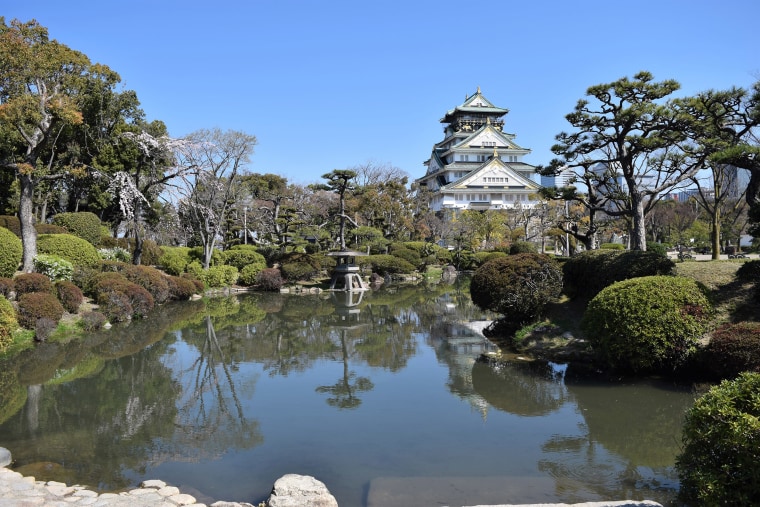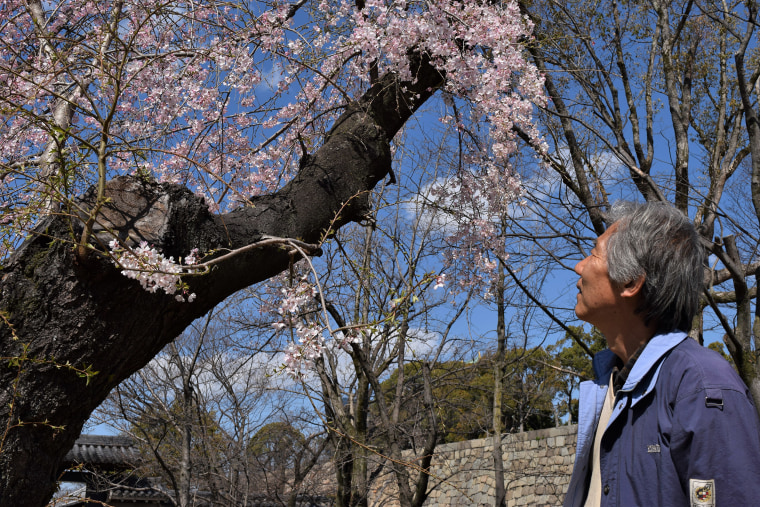OSAKA, Japan — Normally the start of the cherry blossom season in Osaka Castle Park in Osaka, Japan, would be greeted by crowds of tourists walking up the paths and gates to see the its cherry trees in bloom.
But the few tourists seen now are a fraction of the usual crowds, even for a Monday morning, said Yasuyuki Funabiki, a volunteer tour guide with the Osaka Systematized Good-Will Guides Club.
“Only 1 percent,” Funabiki said, comparing the usual crowds to the handful of tourists and locals milling around the summit of the park.
The castle tower, which houses a museum, shut down in late February along with other national museums and attractions as a coronavirus prevention measure.
The number of foreign visitors to Japan dropped 58.3 per cent in February compared to the same time last year, the greatest drop since the 2011 Great East Japan Earthquake.
Japan had 1,193 recorded cases of COVID-19 as of Tuesday, not including the 712 cases from the Diamond Princess cruise ship. There have been 43 domestic deaths relating to coronavirus.

Hanami, or flower viewing, is a tradition dating back more than 1,000 years in Japan. Cherry blossoms signify impermanence and are one of the most important motifs in Japanese art and popular culture.
“Sometimes people compare their lives to cherry blossoms,” said Atsuko Tanaka, also a volunteer guide with the Osaka SGG Club.
The blooming of the cherry blossoms and the mild spring weather in late March to early April make it the busiest stretch of the tourism season in Japan.
But with the Japanese government asking for people to avoid large gatherings, it’s unlikely Japanese companies and groups will hold their usual outdoor parties on blankets under the cherry trees.
In normal years, Japanese companies and groups hold parties on blankets under the cherry trees. However, this year that likely won’t happen, Tanaka said. The club has canceled all its planned tours.
“Personally, I feel that was a wise decision,” Funabiki said.
Full coverage of the coronavirus outbreak
Several volunteer guide groups in Kyoto have also canceled their planned tours.
Fortunately for Funabiki, he doesn’t need to go to a park to see cherry blossoms or socialize.
“My house has a cherry tree and every year, I ask my son’s or daughter’s family to come to my house and we have a little party,” he said.
In late February, Prime Minister Shinzo Abe asked schools to close for the month. However, they are scheduled to reopen in early April.
But in the weeks since, concern over the spread of COVID-19 has shifted from Japan, China and South Korea to Europe and the United States.
Surgical masks, commonly worn in Japan at work or on crowded commutes, are out of stock in drugstores and supermarkets. In the open air of the park, many parkgoers saw no need to wear them.
Even with the threat of the pandemic, there were still travelers trying to enjoy a fine spring day.

“We planned this journey for about two years,” said Maggie Bocker, 44, from Darmstadt, Germany, who was visiting along with her husband, Milan. “It was not an option to cancel everything.”
The couple are planning a 21-day holiday in Japan. With the cherry blossoms still a few days out, they plan to see them bloom when they go to Kyoto, their next destination.
While they are taking some precautions, they are not otherwise changing their plans.
“We can get [coronavirus] in Germany or here,” she said.
Instead of having a hanami party, Tanaka said she will take her mother, who is more than 80 years old, to see the cherry blossoms in Nara, a city about an hour east of Osaka.
“I am thinking Nara Park for us, because my mother wanted to see cherry blossoms,” she said.
“Every year, I refused because I was very busy, but this year I have more free time.”
